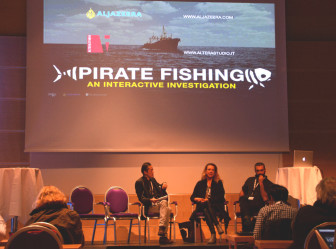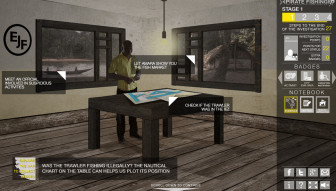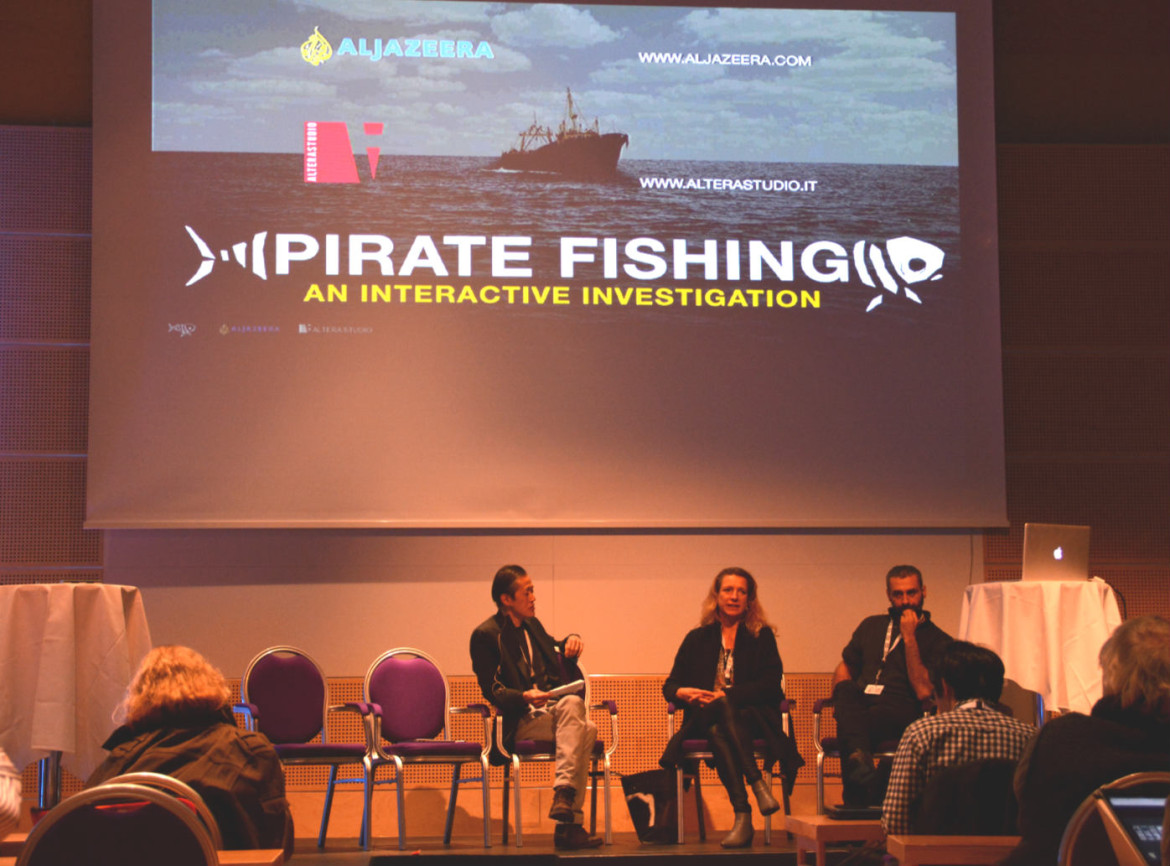 Pirate Fishing, an interactive investigation by Al Jazeera, exposed the world of illegal fishing in Western Africa to an internet audience using elements of an online computer game.
Pirate Fishing, an interactive investigation by Al Jazeera, exposed the world of illegal fishing in Western Africa to an internet audience using elements of an online computer game.
Juliana Ruhfus, a veteran investigative reporter from Al Jazeera, and Ivan Giordano, from Altera Studio, shared their experience on how to do the project.
Their investigation of the multi-million dollar illegal trade went online in 2014.
During the project, Ruhfus got video clips of two pirate trawlers, photos of crew members, and geo-locations that enriched the interactive.
Ruhfus said the goal was to show people how an investigation really works and the effort that went on behind the scenes. The goal was to reach younger audiences and give readers a sense of the thrill of conducting in-depth journalism.
When you click on the interactive, you find yourself receiving an email from your editor assigning you to investigate illegal fishing. You are a junior researcher. You need to collect evidence, watch video clips on illegal fishing, and check your notes. As you go further, you collect more information and get rewarded by being promoted to senior reporter.
The investigation brought a new audience to the news organization. Eight out of every ten visitors to the interactive were new to Al Jazeera’s website. Journalism teachers incorporated it into classwork.
The idea started four years ago when Ruhfus met Giordano, founder of a digital production company called Altera Studio, at a conference in Ukraine.
A game-like format allows elastic storytelling, according to Giordano.

The story was first tested with students before going live. Their feedback included favoring a simpler version, which saddened Giordano, who wanted a more intricate interactive.
The project posed challenges in design and structuring the story.
Ruhfus struggled between giving users the freedom to explore and keeping a traditional narrative.
Ruhfus stressed that the result is not a game, but an interactive journalism piece with gamification elements.

